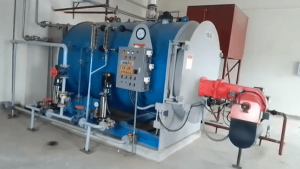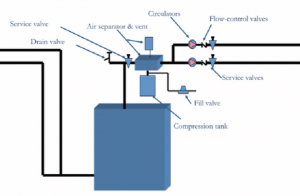Disclosure: As an Amazon Associate, I earn from qualifying purchases. Learn more
Last Updated on December 5, 2023 by Rhyes Frank
Yes, you can leave a block heater plugged in all night. There’s no harm in keeping it plugged in for extended periods.
Leaving a block heater plugged in overnight is generally safe and is a common practice in colder regions. Block heaters are designed to operate safely for long hours. Their primary function is to keep the engine warm, which eases the start-up process in cold weather. By maintaining a warmer engine temperature, they reduce the strain on the battery and starter motor, leading to a smoother start.
The concern with leaving a block heater plugged in for too long often revolves around energy consumption and cost. While block heaters consume electricity, modern heaters are quite efficient. They typically use between 400 to 1500 watts of power, depending on the type and model.
To manage energy usage, many vehicle owners use a timer to control the heater’s operation, setting it to turn on a few hours before they need to use the vehicle.
Safety Concerns of Overnight Block Heater Use
Utilizing a block heater overnight raises legitimate safety concerns that should not be overlooked. Fire risks are at the forefront of these concerns. Heaters can malfunction, especially if they are older or poorly maintained, leading to potential fire hazards.
Electrical hazards are another critical aspect. Faulty wiring or overloaded circuits can create dangerous situations. The continuous operation can also accelerate wear and tear on components, leading to premature failure or damage.
Adherence to manufacturer recommendations is vital for safe usage. They provide specific guidelines on how long and under what conditions the block heater should be used.
Employing basic safety precautions like regular maintenance checks and ensuring the heater is connected to a circuit with a functioning circuit breaker can mitigate many of these risks.
Factors To Consider Before Leaving A Block Heater Plugged In All Night
1. Assessing Vehicle Manufacturer Guidelines: Check the vehicle’s manual for specific instructions regarding block heater usage.
2. Evaluating Electrical System’s Capacity: Ensure your home’s electrical system can handle prolonged block heater use without overloading.
3. Analyzing Ambient Weather Conditions: Consider the outside temperature and whether extended use is necessary.
4. Understanding Block Heater’s Age and Condition: Older or damaged heaters may pose higher risks when used for extended periods.
5. Considering Alternative Heating Options: Look into timer systems or other heating methods that might be safer for overnight use.
Energy Efficiency and Cost Implications of Extended Block Heater Operation
Leaving a block heater plugged in all night leads to increased electricity consumption, directly impacting energy bills. Conducting a cost analysis of this practice is essential to understand its financial implications.
The environmental impact should also be considered, as excessive electricity use contributes to larger carbon footprints. However, the efficiency of modern block heaters has improved, making them more energy-efficient than older models.
Comparing the electricity consumption and costs of continuous use versus intermittent use can provide a clearer picture of the most economical and eco-friendly approach.
Learn More: What Causes Pilot Light to Go Out on Water Heater & How to Fix It
Impact of Continuous Block Heater Use on Vehicle Performance
Continuous use of a block heater affects various aspects of vehicle performance. Prolonged heating can lead to unnecessary engine wear, impacting its longevity. It can also affect lubrication quality over time.
Battery life may be shortened due to the constant power draw. While immediate start-up performance in cold weather might improve, this should be weighed against potential long-term engine health issues.
Identifying the optimal usage duration based on specific vehicle needs and environmental conditions is crucial to maintaining vehicle performance.
Best Practices for Block Heater Use in Various Climates
Using a block heater effectively depends greatly on the climate. In colder regions, understanding the temperature thresholds for plugging in the heater is essential. Duration of use should vary based on climate severity.
Seasonal considerations, such as shorter usage times in milder winters, can help in optimizing the heater’s efficiency. Following vehicle-specific guidelines ensures that the heater is used in a way that is best suited to the make and model of the vehicle.
Learning from user experiences in extreme weather conditions can also offer valuable insights into best practices.
Technological Advancements and Alternatives to Traditional Block Heaters
Recent innovations in block heating technology have introduced more efficient and safer alternatives to traditional heaters. These advancements include smart plugs and timers that allow for controlled and scheduled heating, reducing the need for overnight use.
Alternative heating methods, such as fuel-line heaters or battery warmers, offer different approaches to pre-warming vehicles. These technologies are not only more energy-efficient but also reduce the environmental impact.
The future trends in vehicle heating systems point towards further improvements in efficiency and safety, making them a crucial aspect to consider for modern vehicle owners.
Pros And Cons Of Leaving A Block Heater Plugged In All Night
Pros:
- Improved engine start-up performance in cold weather
- Reduced engine wear from cold starts
- Potentially longer engine life in consistently cold climates
Cons:
- Increased fire and electrical safety risks
- Higher energy consumption and costs
- Possible accelerated wear on heater components and vehicle battery
- Environmental impact due to excessive energy use

